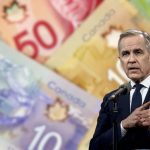Canada does not yet have a national universal basic income (UBI), but in 2025, the country is running several pilot projects and targeted cash support programs that reflect elements of what a UBI could look like. These initiatives are not uniform across the nation; instead, they are tailored at provincial levels or aimed at specific demographic groups such as homeless individuals, low-income seniors, or adults with reduced work capacity.
What makes these programs significant is not just the money provided but the broader lessons they offer: proof that direct, unconditional cash support can improve lives, reduce poverty, and strengthen social stability.
Understanding Canada’s 2025 UBI-Style Experiments
While Canada has debated UBI for decades, 2025 is a year marked by multiple live trials and active income-support programs. These include:
- A one-time lump sum cash transfer for homeless people in British Columbia.
- Monthly income support for older adults nearing retirement in Newfoundland & Labrador.
- A guaranteed top-up to raise incomes close to the poverty threshold in Prince Edward Island.
- Regular monthly income for individuals unable to work long-term in Quebec.
- Legacy findings from the Ontario Basic Income Pilot (2017–2019).
- The federal Guaranteed Income Supplement (GIS) for low-income seniors across Canada.
Together, these initiatives create a patchwork of basic income-style supports that are shaping national policy conversations.
Program Overview at a Glance
| Province / Program | Type & Benefit | Target Group | Key Outcome / Feature |
|---|---|---|---|
| British Columbia – New Leaf Project | \$7500 lump sum (2018 & 2022 rounds) | Homeless persons | 99 fewer days homeless; quicker housing access |
| Newfoundland & Labrador | Monthly financial aid | Low-income adults aged 60–64 | Provides support pre-OAS |
| Prince Edward Island – T-BIG Pilot | Cash top-up to reach 85% of poverty line | 600+ low-income individuals | Raises incomes closer to poverty threshold |
| Quebec Basic Income Program | ~\$1309 monthly | Long-term work-limited individuals | Regular income for reduced work capacity |
| Ontario Basic Income Pilot (2017–19) | Up to \$16989/year single; \$24027/year couples (scaled) | Low-income adults aged 18–64 in select cities | Improved finances, nutrition, stress reduction |
| Guaranteed Income Supplement (GIS) | Up to \$1087/month | Low-income seniors 65+ with OAS | Inflation-adjusted, automatic payment |
British Columbia’s New Leaf Project
The New Leaf Project is one of Canada’s most well-documented experiments in direct cash transfers. Participants—drawn from homeless populations in Vancouver—received a one-time lump sum of \$7,500.
Results were striking:
- Homelessness days were reduced by 99 days per participant compared to the control group.
- Recipients secured housing faster and more consistently.
- Food security improved significantly, with more participants able to access regular meals.
- Importantly, there was no increase in spending on alcohol or drugs—a common public concern.
By showing that unconditional cash can empower individuals rather than enable harmful behaviors, the New Leaf Project has become a model for UBI advocates worldwide.
Newfoundland & Labrador’s Pre-Pension Support
In Newfoundland & Labrador, targeted income assistance helps low-income adults aged 60–64 who are not yet eligible for Old Age Security (OAS).
This monthly aid provides a bridge before pension age, addressing a gap faced by older adults who cannot work but also do not yet qualify for federal retirement benefits.
By stabilizing incomes during this critical period, the province reduces poverty risks and prevents seniors from slipping into homelessness or deep debt just before they qualify for national programs.
Prince Edward Island’s T-BIG Pilot
Prince Edward Island is testing a Targeted Basic Income Guarantee (T-BIG) pilot. Since its launch in 2021, the program has provided income top-ups for more than 600 low-income residents, ensuring their household income reaches at least 85% of the poverty line.
The pilot focuses on closing the income poverty gap rather than offering a flat benefit. Participants have reported:
- Better access to nutrition.
- Reduced reliance on food banks.
- Increased stability in housing payments.
- Improved ability to budget and plan.
As PEI is Canada’s smallest province, the scale is limited, but the pilot provides crucial data for considering broader expansion.
Quebec’s Basic Income Program
Quebec has moved closer than any other province toward a true basic income model. Its Basic Income Program provides around \$1,309 per month to people with long-term work limitations who cannot sustain employment.
Unlike short-term social assistance, this program is ongoing and predictable, giving participants financial security and dignity. Recipients also benefit from automatic adjustments for inflation, ensuring real value is preserved year to year.
This initiative highlights Quebec’s role as a leader in social policy experimentation, offering lessons that could inform future federal decisions.
Ontario’s Basic Income Pilot (2017–2019)
Though cancelled prematurely, Ontario’s Basic Income Pilot remains a landmark experiment in Canada’s UBI journey. Participants received up to \$16,989 per year for singles and \$24,027 per year for couples, with reductions based on earned income.
Documented outcomes included:
- Significant improvements in nutrition and health.
- Reduced stress and anxiety.
- Increased ability to afford housing and long-term planning.
- Enhanced confidence, autonomy, and sense of security.
Despite its success, the program was shut down after only 10 months, cutting short what many experts believe could have provided stronger long-term evidence of UBI’s impact.
Guaranteed Income Supplement (GIS)
The GIS is not a pilot—it is a long-standing federal benefit for low-income seniors. In 2025, it provides up to \$1,087 per month for single seniors, supplementing Old Age Security (OAS).
- Eligibility: Must be aged 65 or older and receiving OAS.
- Automatic Benefit: Payments are calculated from annual tax returns, requiring no separate application.
- Inflation Protection: The GIS is adjusted regularly to keep pace with rising costs.
While GIS is targeted at seniors rather than the general population, it reflects the core philosophy of basic income: providing stable, guaranteed financial support to those who need it most.
Why These UBI-Style Programs Matter
Canada’s experiments show that even partial or targeted basic income models can deliver substantial social benefits.
- Reduced Poverty – Direct cash transfers lift households closer to or above the poverty line.
- Improved Housing Security – Programs like BC’s New Leaf Project help people transition out of homelessness.
- Better Health Outcomes – Participants report improved nutrition, reduced stress, and stronger mental health.
- Empowerment – Cash assistance enhances dignity, autonomy, and the ability to plan for the future.
- Policy Innovation – Data from these pilots fuels Canada’s national debate about a future universal program.
The Road Ahead for UBI in Canada
Although Canada has not implemented a nationwide universal basic income, these pilots create a policy testing ground. Federal and provincial governments are watching outcomes closely to assess affordability, effectiveness, and scalability.
Critics argue that full UBI would be too expensive, but supporters point to the social savings from reduced health care, homelessness, and poverty costs.
In 2025, the question is not whether basic income works—it clearly does in targeted cases—but whether Canada will move from pilots to a national program.
5 FAQs
Q1: Does Canada currently have a national UBI?
No. Canada does not have a nationwide UBI, but several provinces are testing targeted programs in 2025.
Q2: Which provinces are running basic income pilots in 2025?
British Columbia, Newfoundland & Labrador, Prince Edward Island, and Quebec have active or recent UBI-style programs. Ontario also ran a pilot from 2017–2019.
Q3: What were the results of the Ontario Basic Income Pilot?
Participants reported better nutrition, improved housing, reduced stress, and greater financial stability, though the program was cancelled early.
Q4: How much can participants receive in these programs?
Amounts vary: BC offered a \$7,500 lump sum, Quebec provides around \$1,309 monthly, and PEI tops up incomes to 85% of the poverty line.
Q5: Is the Guaranteed Income Supplement (GIS) considered a basic income?
While not a pilot, GIS functions similarly to UBI by providing a guaranteed, inflation-adjusted monthly payment to low-income seniors.










